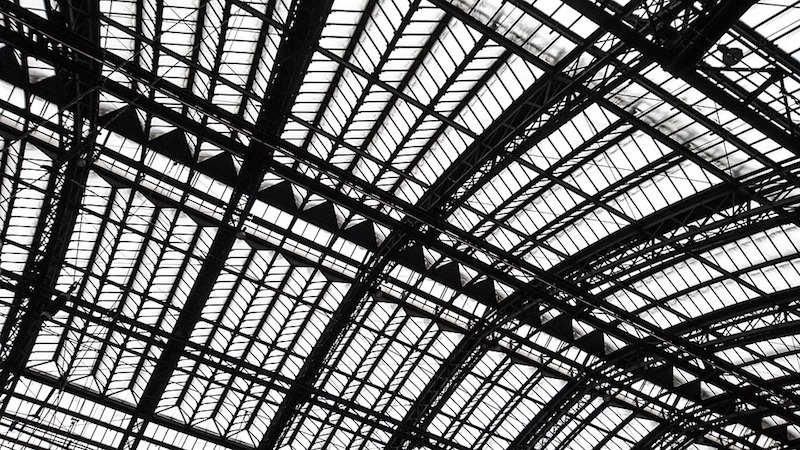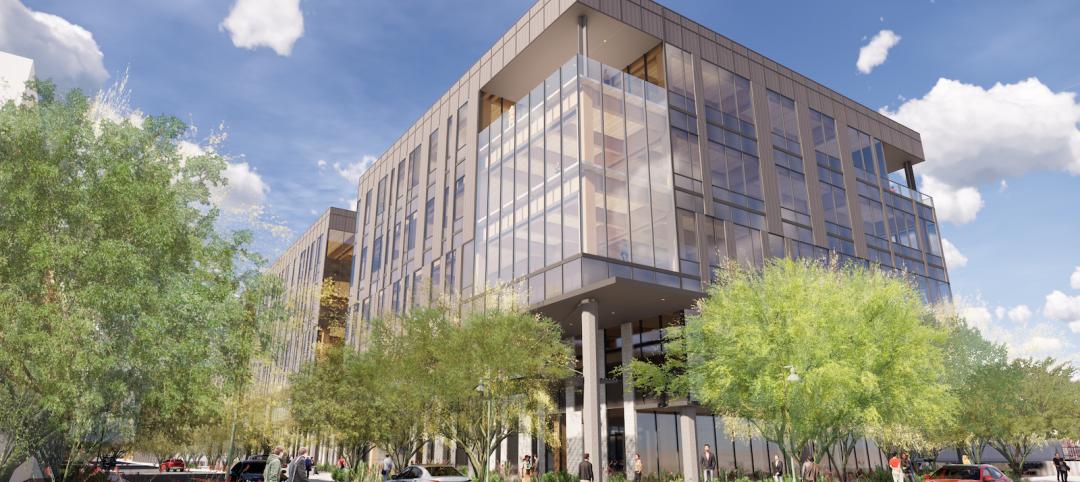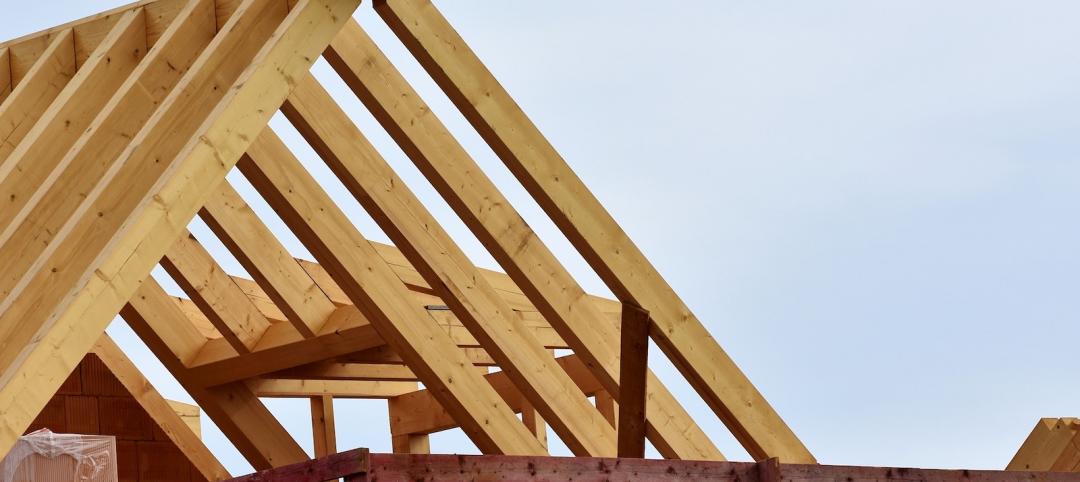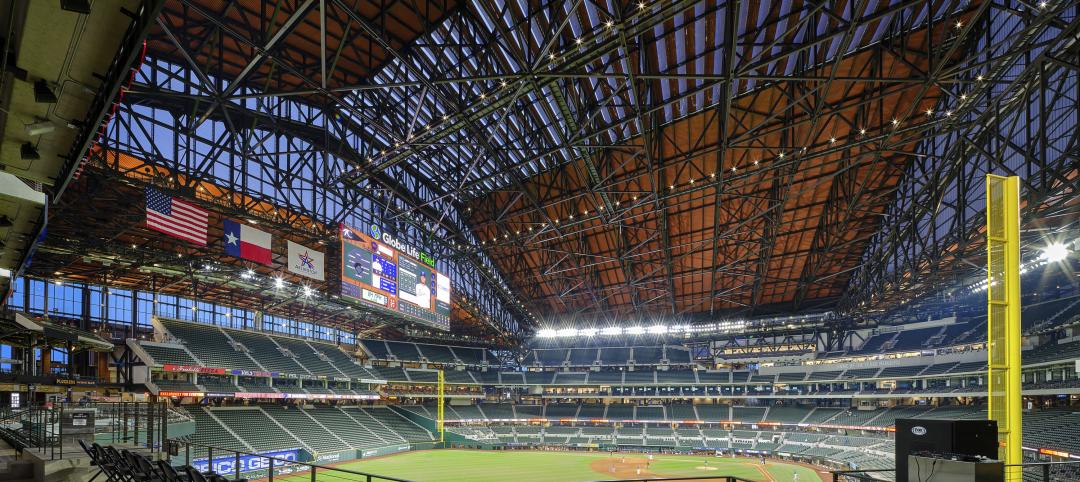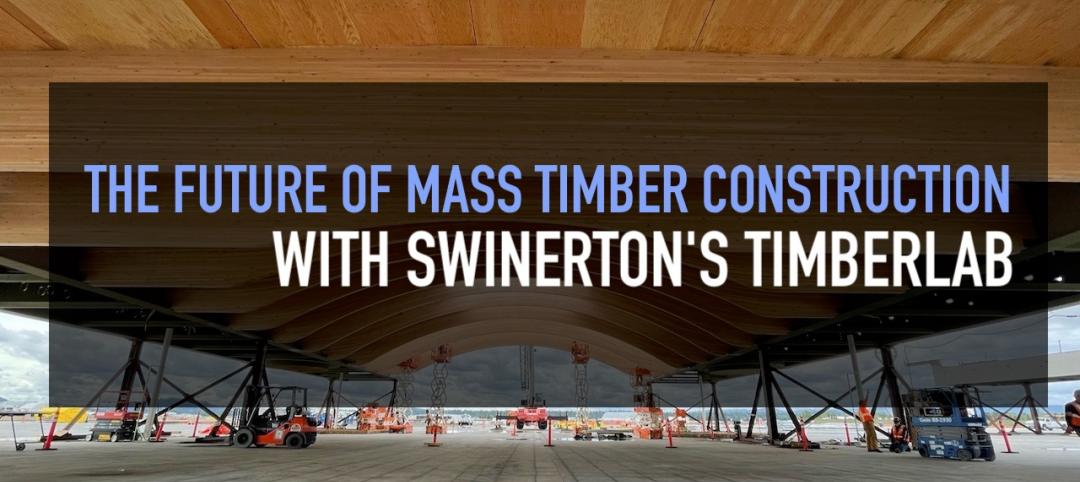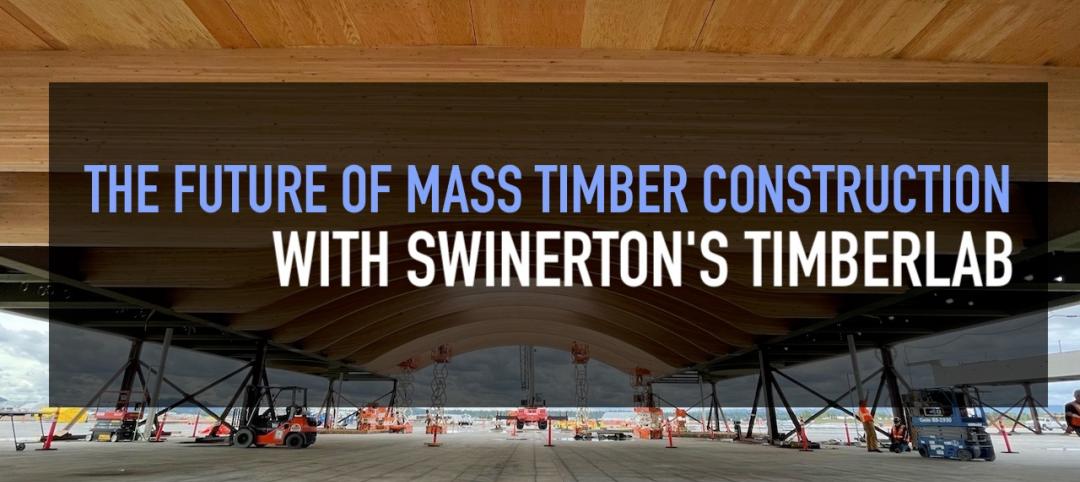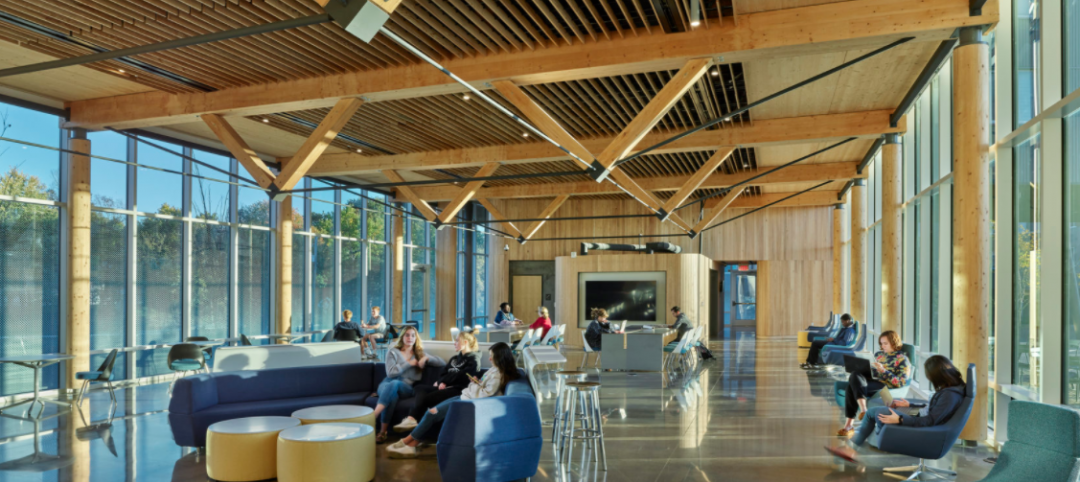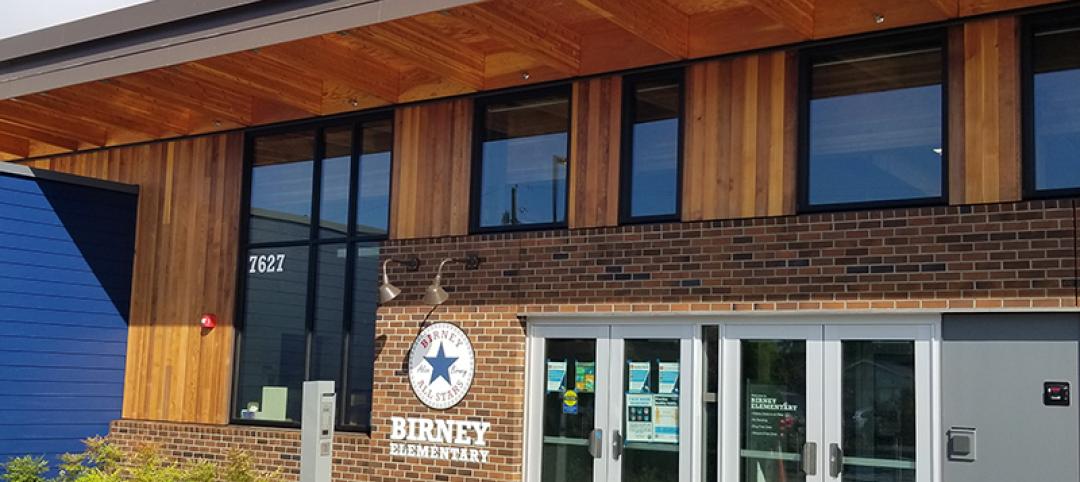Steel and concrete manufacturers and their trade groups oppose changes in U.S. building codes that would allow mass timber for tall buildings. Their arguments center on fire safety, strength, and durability, while making the case for the environmental benefits of their products.
The American Institute of Steel Construction contends that the steel industry is a “world leader” in using recycled material and end-of-life recycling, and has made strides to lower greenhouse gas emissions below regulatory requirements. At a webinar on resilience in November, the National Ready-Mix Concrete Association and the MIT Concrete Sustainability Hub presented research which claimed that enhanced concrete design is more cost- and energy-efficient than non-engineered wood design.
Concrete and steel both beat mass timber on price, although that advantage is narrowing. StructureCraft Builders’ Lucas Epp says that by using nail laminated timber, the Building Team got construction costs for T3, in Minneapolis, to within 5% of steel.
Paul Fast, of Fast + Epp, says his team got the cost of Brock Commons, at the University of British Columbia, “very close to the price of using concrete.” He concedes that wood construction “groans on the cost front” for buildings with bigger apartments or wider interior spans. In markets like Washington, D.C., where building with concrete is relatively cheap, “wood has less hope,” he says.
Prices should come down as new innovations emerge. Freres Lumber Co., Lyons, Ore., is refining its new product, mass plywood panels, as a lower-cost alternative to CLT. MPPs require 20–30% less wood because they use engineered veneer and custom plywood layups as base materials. The panels can be fabricated in sizes up to 12x48 feet, and in thicknesses up to two feet.
Related Stories
Contractors | Mar 28, 2022
Amid supply chain woes, building teams employ extreme procurement measures
Project teams are looking to eliminate much of the guesswork around product availability and price inflation by employing early bulk-purchasing measures for entire building projects.
Office Buildings | Feb 23, 2022
The Beam on Farmer, Arizona’s first mass timber, multi-story office building tops out
The Beam on Farmer, Arizona’s first mass timber, multi-story office building, topped out on Feb. 10, 2022.
Wood | Feb 18, 2022
$2 million mass timber design competition: Building to Net-Zero Carbon (entries due March 30!)
To promote construction of tall mass timber buildings in the U.S., the Softwood Lumber Board (SLB) and USDA Forest Service (USDA) have joined forces on a competition to showcase mass timber’s application, commercial viability, and role as a natural climate solution.
Sponsored | BD+C University Course | Oct 15, 2021
7 game-changing trends in structural engineering
Here are seven key areas where innovation in structural engineering is driving evolution.
| Oct 14, 2021
The future of mass timber construction, with Swinerton's Timberlab
In this exclusive for HorizonTV, BD+C's John Caulfield sat down with three Timberlab leaders to discuss the launch of the firm and what factors will lead to greater mass timber demand.
Wood | Jul 16, 2021
The future of mass timber construction, with Swinerton's Timberlab
In this exclusive for HorizonTV, BD+C's John Caulfield sat down with three Timberlab leaders to discuss the launch of the firm and what factors will lead to greater mass timber demand.
Wood | Jun 10, 2021
Three AEC firms launch a mass timber product for quicker school construction
TimberQuest brand seeks to avoid overinvestment in production that has plagued other CLT providers.
Wood | May 14, 2021
What's next for mass timber design?
An architect who has worked on some of the nation's largest and most significant mass timber construction projects shares his thoughts on the latest design trends and innovations in mass timber.
Wood | Jan 8, 2021
20,000-sf mass timber urban infill project completes in Portland
Skylab designed the project.
Sponsored | Wood | Nov 12, 2020
Engineered Wood Gets an Easy A
A Washington school district creatively leveraged the aesthetic and acoustic benefits of engineered wood products in their newly constructed school.


